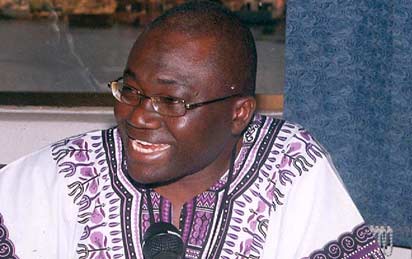Revive textile industry, Organised Labour tells FG
(Nigeria) Organised labour has called on the Federal Government to
take urgent measures to revive the Nigerian textile industry in fulfilment of
its promise to revive the industry and provide mass decent employment.
General Secretary of National Union of Textile and
Garment Workers and Chairman IndustriALL Global Union Sub-Saharan Africa, Mr Issa Aremu, made the call during the study visit of Group one,
Senior Executive Course, SEC, 38 Participants of the National Institute for
Policy and Strategic Studies, NIPSS, Kuru to Textile Labour House, National
Secretariat of the Union in Kaduna on Thursday.Aremu noted that textiles used to be Nigeria’s foremost industry, being the second largest employer after government and utilising indigenous raw materials such as cotton. The prevailing unprecedented harsh environment has dealt a serious blow to the already fragile industry.
According to him, “if urgent steps are not taken by the government to address key issues raised by the industry stakeholders, the ray of hope that had arisen from Buhari government initiatives may get extinguished.”
Aremu who is also the Secretary General of the Alumni Association of the National Institute for Policy and Strategic Studies, AANI, noted that Nigeria currently spends over $4 billion annually importing textiles and readymade clothing when it has the potential to produce for the local market and even export to the ECOWAS market of over 175 million people, as well as to the developed world (e.g. the United States under AGOA and EU GSP scheme which Kenya, Ethiopia, Lesotho, Madagascar and a number of African countries are already exploiting).
He Aremu decried the influx of smuggled goods in major textile markets in Kantin Kwari, Kano, Balogun and Oshodi, Lagos. This he noted undermines the local industry, steal our jobs, deprives government of revenue and drains the country’s foreign exchange reserves.
He called on the Federal Government to emulate other
developing countries that are investing heavily in their textile industry due
to its high employment potential.
Ethiopia has among the most competitive power
tariff at 4 US Cents/Kwh, which is a fifth of the power cost in Nigeria.
Recently, India, which is the second largest textile producer in the world
after China, announced a $ 1 bn incentive package for the textile and apparel
industry to create 10 million jobs in three years.
Aremu listed some urgent measures that must be taken
to revive the industry..Checking the influx of smuggled goods and action against counterfeit textiles which fake the Nigerian trade marks in an effective manner.
.Improve power supply for industrial use.
·Recapitalisation of Bank of Industry (BOI) and reduction of interest
rate to the industry.
·Re-scheduling
of the CTG loan facility by the Bank of Industry to 10 + 2 years.
.Reduction in
the price of gas. The price of gas supplied to the local industry is pegged to
the American dollar and was not reviewed after the drop in global oil and gas
prices. The current domestic tariff at $7.38 per MMSCF is three times the price of
gas in international market. There is a need to review the tariff on gas
supplied to the industry in Naira which should be affordable.
·Scarcity of
black oil has crippled the operations of the textile mills in the north. There
is a need to ensure availability of the fuel oil to the textile mills by way of
direct allocation from Kaduna and other refineries.
·Consistent
supply of certified seeds is required to ensure adequate supply of cotton to
local textile industry
·Under the dual
exchange rate policy being currently pursued, CBN should allocate forex at
official rate for meeting the need for import of essential raw materials by the
textile mills
·Local
patronage: Government should persuade its MDA’s to source all their uniforms
from the local textile mills. The scheme for supply of free meals to school
children should be extended to free uniforms to be procured by the government
from local textile mills.



Comments
Post a Comment